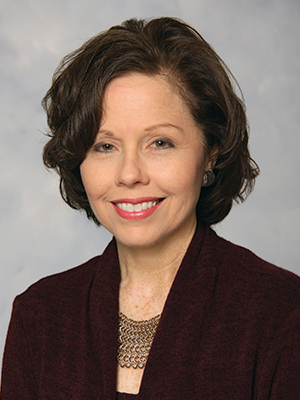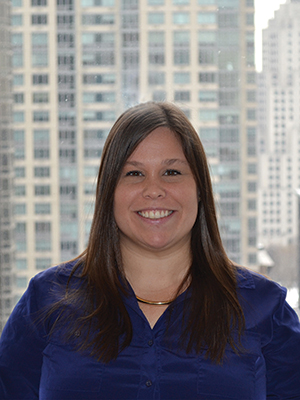I’m interested in blogging about my treatment and experience with cancer. What should I be aware of, and how do I get started?

Mailet Lopez, Founder of I Had Cancer, an online cancer support community in New York City Photo by Richard Freeda
MAILET LOPEZ: Writing about your cancer experience online can help you cope with your feelings and make it easier to inform family and friends about your treatment and progress. It also can provide you with the support you need and connect you with others in the cancer community.
Before starting a blog, define its purpose. This will help you maintain a focus in your writing. Are you blogging for yourself or to keep close family and friends informed or both? Or do you want to reach a broader audience in hopes that your cancer experience will help others? Then decide how much you’re comfortable sharing and whether or not you want to be anonymous. While you might feel as if you want to publish every detail of your experience now, you might regret it later. Disclosing too much information could negatively affect your family and career. Remember, anything you post publicly could remain on the Internet through caching, when information is stored in a computer’s memory, even if you delete it.
When choosing a platform, keep the privacy settings in mind. You could create an account on sites such as I Had Cancer, CaringBridge or WordPress, which provide privacy settings that allow you to control who can see your posts. Your blog can be as private or as public as you’d like.
Determine how often you want to post, whether it’s once a month, a few times a week or whenever you feel like it. If you develop a following, your readers might expect more frequent posts from you. If you have trouble coming up with ideas, try using a prompt, such as “How do I feel today?” or “What’s one new thing I learned about my cancer today?”
To make your blog more effective, keep posts between 500 and 700 words, and include photos to break up the text. Writing interesting and specific headlines will make people more likely to read your blog and find it through search engines. For example, if you write a post about your first day of treatment, instead of a headline that reads “Treatment Day 1,” try “How I Made It Through My First Day of Treatment.” Last, if you have a public blog, share your posts on social media to drive people to your site.
BLOGGING ABOUT CANCER // The University of Texas M. D. Anderson Cancer Center shares methods and tips for journaling about cancer. // Healthline lists the best cancer blogs of 2014.
I recently finished treatment and I’m feeling fatigued. How do I manage this side effect?

Shelley A. Johns, Clinical Health Psychologist and Assistant Professor of Medicine at Indiana University School of Medicine in Indianapolis Photo courtesy of Shelley A. Johns
SHELLEY A. JOHNS: Research has shown fatigue is one of the most common, persistent and distressing symptoms associated with cancer. Most cancer patients experience fatigue while undergoing chemotherapy or radiation, and about 20 to 30 percent of cancer survivors continue having the symptom for years after treatment. Cancer-related fatigue—a persistent sense of physical, emotional or cognitive exhaustion—is associated with an increase in disability, use of health care and risk of recurrence. It can negatively affect your career, relationships, mood and daily activities.
Although fatigue is a difficult symptom, it can be well-managed. If your fatigue is interfering with your ability to function or hasn’t started to improve a month or so after you complete treatment, talk with your oncologist or family doctor, who could identify factors that might be affecting your energy level.
Cancer and cancer treatment can cause a loss of muscle and endurance in some survivors, making physical activity difficult. However, resting too much can worsen fatigue, while becoming more active can help alleviate it. Start small by increasing your physical activity by a few minutes every day—walking short distances and sitting for no more than an hour at a time. If your doctor recommends you start a fitness program, ask for a referral to a physical therapist, who can tailor a fitness program to your needs.
Psychological distress from facing cancer also can contribute to your tiredness. Stress, depression and anxiety can consume your energy, contribute to sleep disturbance and cause you to feel worn down. A psychologist could help you determine whether your fatigue stems from emotional distress and might recommend therapy. Yoga, mindfulness-based stress reduction programs and energy conservation—setting priorities and realistic expectations, pacing yourself and scheduling activities at times of peak energy—also could help.
Inadequate nutrition and dehydration could exacerbate your fatigue as well. Eat a well-balanced diet of fruits and vegetables, whole grains, healthy fats and lean protein to boost your energy. Meet with a nutritionist to develop a healthy eating plan.
The first step in recovering from fatigue is to report the symptom to your medical team. Few patients and survivors report fatigue to their doctors because they believe nothing can be done to relieve it. Seek help, be patient with yourself and don’t give up.
COPING WITH FATIGUE // The American Cancer Society shares seven ways to manage cancer-related fatigue. // The Livestrong Foundation provides causes and symptoms of fatigue. // The University of Michigan Comprehensive Cancer Center offers tips for minimizing fatigue with nutrition and exercise.
I live hours away from my mother who has cancer. How can I help with her care from a distance?

Carly Mesavitz, Licensed Clinical Social Worker and Caregiver Program Coordinator at CancerCare in New York City Photo courtesy of CancerCare
CARLY MESAVITZ: To begin with, you are not alone. More than 7 million Americans provide care from a distance. Long-distance caregivers are often unsure of how to best support close family or friends who have cancer and may feel more distress as a result. While you might feel as though you’re unable to provide everything you want for your mother, there are many ways in which you can help regardless of the distance, including organizing her care and providing emotional support.
Before making assumptions about how involved you need to be, talk to your mother about her physical and emotional needs and wishes, as many patients hope to retain some independence.
Connect with her local support network—whether it’s family, friends or hired help—and determine who will tackle each caregiving responsibility, such as helping to coordinate her medical appointments, arrange her transportation, manage her medical bills or records and research her treatment options. Getting organized and clearly defining these tasks can help manage expectations, making your mother feel supported and caregivers feel productive and helpful. Communicating with other caregivers in your mother’s life will help ensure that her needs are met and will make you feel involved in a meaningful way.
You can always be there to provide emotional support, which can help strengthen your relationship with your mother and reassure her that you’re committed—despite the distance. Check in with her often to see how she’s doing, and let her know you’re thinking of her by emailing, video chatting, sending cards or care packages and arranging for a visit when possible.
Long-distance caregiving can be time consuming and overwhelming—causing feelings of guilt, anxiety, isolation and sadness—so stay attuned to and make time for yourself, and seek help from a support group, counselor or online resources.
GOING THE DISTANCE // Cancer Support Community offers an online radio show on challenges that long-distance caregivers face. // The American Society of Clinical Oncology shares suggestions for how to be a more effective caregiver from afar.
Cancer Today magazine is free to cancer patients, survivors and caregivers who live in the U.S. Subscribe here to receive four issues per year.




